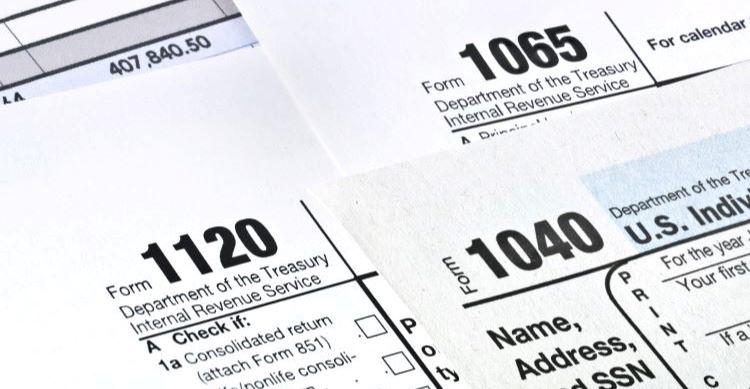Tax Considerations When Buying a Business

Buying an existing business can be an attractive option for entrepreneurs searching for their next investment opportunity or small business owners looking to expand their enterprises. That said, it’s crucial to understand the tax implications of buying a business before beginning the process. This article will explore the tax considerations buyers should be conscious of when buying a business, including tax implications, purchase price allocation, depreciation, and potential tax deductions.
Tax Implications of Buying a Business
When purchasing a business, buyers must be aware of the tax consequences that come with the transaction. One critical consideration is the allocation of the purchase price. Buyers should allocate the purchase price to the business's assets to minimize tax liability. The buyer should work with a tax professional to determine the fair market value of each asset and allocate the purchase price accordingly.
The allocation is important because some assets may have a higher tax basis. In that case allocating more of the purchase price to them can result in a higher tax liability. Inversely, other assets may have a lower tax basis, an increased allocation in purchase price to those assets would result in a lower tax liability for the buyer.
The structure of the transaction also affects the tax implications for both the buyer and the seller.
A stock sale involves the purchase of the ownership interest in the existing business, while an asset purchase consists of the purchase of the company’s assets. A stock transaction can be advantageous for the buyer, as it avoids the need to allocate the purchase price to individual assets, which can be time-consuming and complex. However, an asset acquisition can be advantageous for the seller, resulting in a higher selling price as well as avoiding potential liabilities associated with the existing business.
Purchase Price Allocation
When buying a business, the buyer takes on the company's assets, and the purchase price needs to be split among them. This split determines the tax implications for the buyer and the seller. For example, suppose the buyer allocates more of the purchase price to assets that can be depreciated or amortized quickly, like equipment or tangible assets. In that case, they can take advantage of tax deductions earlier, which can benefit their cash flow.
In another example, suppose the purchase price is allocated to assets that can be depreciated or amortized more slowly, such as intangible assets like patents or trademarks. Then the buyer may take advantage of tax deductions over time. Allocating assets in such a way can meaningfully benefit the buyer's cash flow by reducing their taxable income and, therefore, their tax liability.
On the other hand, the seller may want to allocate more of the purchase price to assets subject to long-term capital gains tax, such as real estate or corporate assets. This is because long-term capital gains tax rates are typically lower than income tax rates. By allocating more of the purchase price to said assets, the seller can minimize their tax liability and potentially retain more sale proceeds.
It's worth noting that the purchase price allocation is subject to IRS scrutiny and must be done per the current tax laws. If the allocation is deemed unreasonable, the IRS can challenge it. Therefore, it's essential to work with a tax professional to ensure that the allocation correctly complies with the tax law.
Impact of Depreciation
As mentioned, depreciation is an exceedingly important concept when considering the tax implications involved with purchasing a business. As a reminder, depreciation enables businesses to spread the cost of their assets over their useful lives. It is important to note that most assets lose their value over time due to wear and tear, obsolescence, or other factors. By allocating the cost of an asset over its useful life, businesses can reduce their taxable income and ultimately lower their tax liability.
Buyers can depreciate the purchase price of a business over the useful life of the assets acquired, which can result in significant tax savings. However, the useful life of the assets can vary depending on the asset type and the current law. To ensure that they maximize their depreciation deductions, buyers should consult with a tax professional who can help them determine the useful life of the assets acquired and identify any tax benefits they may be eligible for.
Additional Potential Tax Deductions
Buyers of a business may be eligible for various tax deductions. For example, the buyer may be able to deduct the costs associated with due diligence, such as legal and accounting fees. Additionally, the buyer may be able to deduct certain expenses related to the acquisition, such as escrow fees or loan origination fees.
Small business owners should also be aware of the potential tax benefits associated with acquiring another business. For example, the acquisition of an existing business can provide the buyer with access to new markets, technologies, or customers, which can result in increased revenues and profits. Depending on the amount, some or all of the acquisition cost is tax deductible.
Conclusion
Buying a business can be a wise investment decision for entrepreneurs and small business owners looking to expand their enterprises. However, it's essential to consider the tax implications of such a transaction before embarking on the purchase. Key tax considerations include purchase price allocation, tax implications, depreciation, and potential tax deductions.
Small business owners should also be aware of the type of transaction they want to engage in and the tax implications associated with each. By working with a tax professional to ensure that the allocation is done correctly and complies with tax law, buyers can take advantage of tax deductions over time, reduce their taxable income, and ultimately lower their tax liability.
Overall, understanding tax implications is crucial to making an informed decision and maximizing the financial benefits of the transaction when buying a business.

